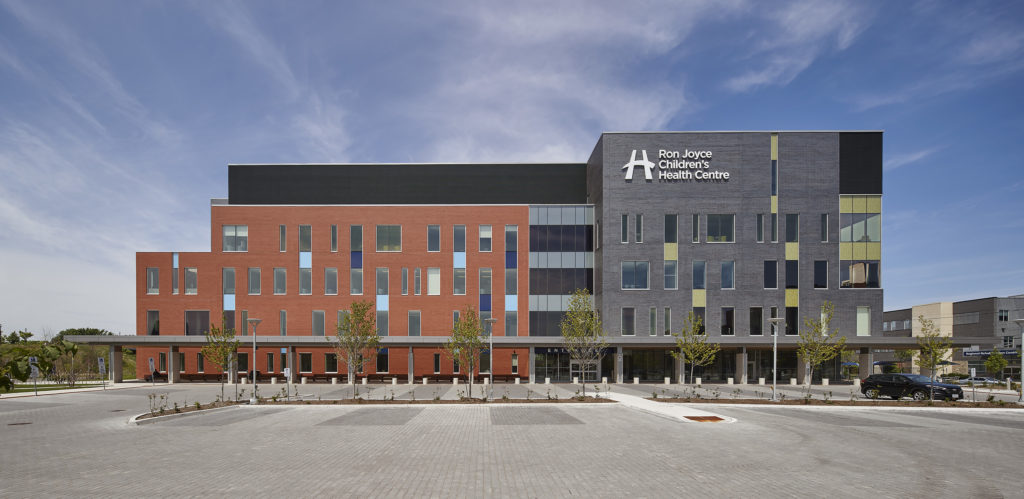
Ron Joyce Children’s Health Centre earns LEED® Gold Certification
Hamilton Health Sciences’ newest facility pairs exceptional patient care with environmental sustainability
Hamilton Health Sciences (HHS) has achieved another significant milestone in its path to environmental sustainability, earning LEED® (Leadership in Energy and Environmental Design) Gold Certification for the new Ron Joyce Children’s Health Centre (RJCHC).
“It’s this collaborative approach that allowed us to create a purpose-built facility that positively impacts our young patients and their families, while minimizing the environmental footprint on our surrounding community.”
“The Ron Joyce Children’s Health Centre is a reflection of years of thoughtful, innovative planning by our staff and construction partners,” says Dr. Peter Fitzgerald, president, McMaster Children’s Hospital. “It’s this collaborative approach that allowed us to create a purpose-built facility that positively impacts our young patients and their families, while minimizing the environmental footprint on our surrounding community.”

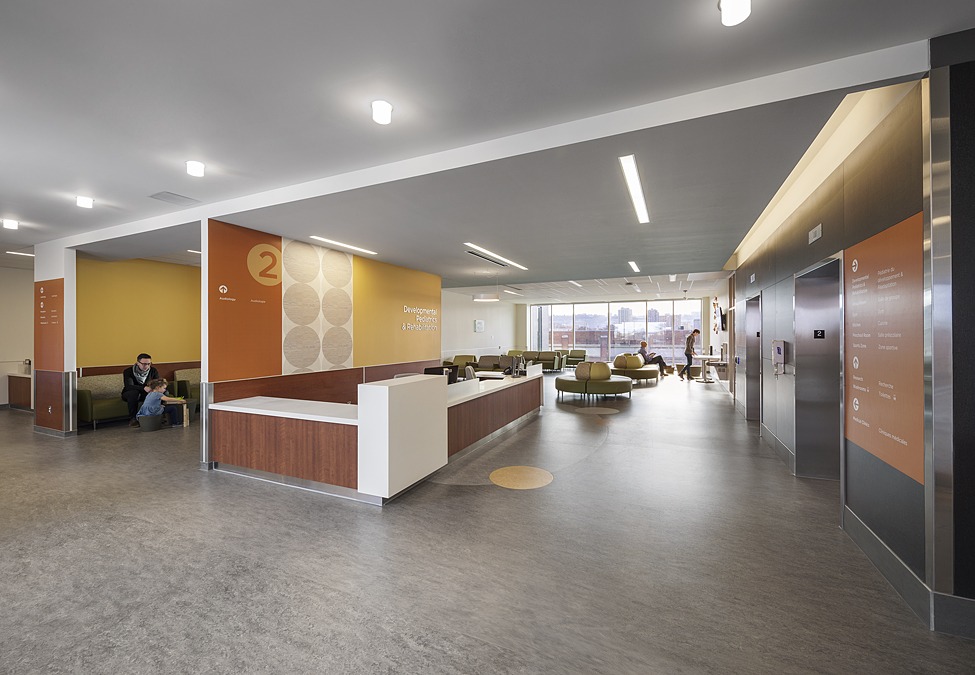
Combining sustainability and design
The building is uniquely designed to suit the needs of its clients and families. With a spacious four-storey atrium, full height windows, and outdoor terraces, the facility makes the best use of natural light. The overall design of the facility is intended to create a space where children, youth and adults feel welcomed, engaged, and encouraged, while receiving exceptional care.
The project was certified gold, under LEED® Canada New Construction standards, earning 64 points.
“As design-builder, PCL is extremely proud of the collaborative team effort that has secured LEED® Gold status to provide Hamilton Health Sciences with a facility that balances energy efficiency with occupant comfort, enabling the health system to provide care for children and their families in an environment that is as healthy as possible, for years to come,” said Mike Wieninger, vice president & district manager for PCL Constructors Inc. (Toronto).
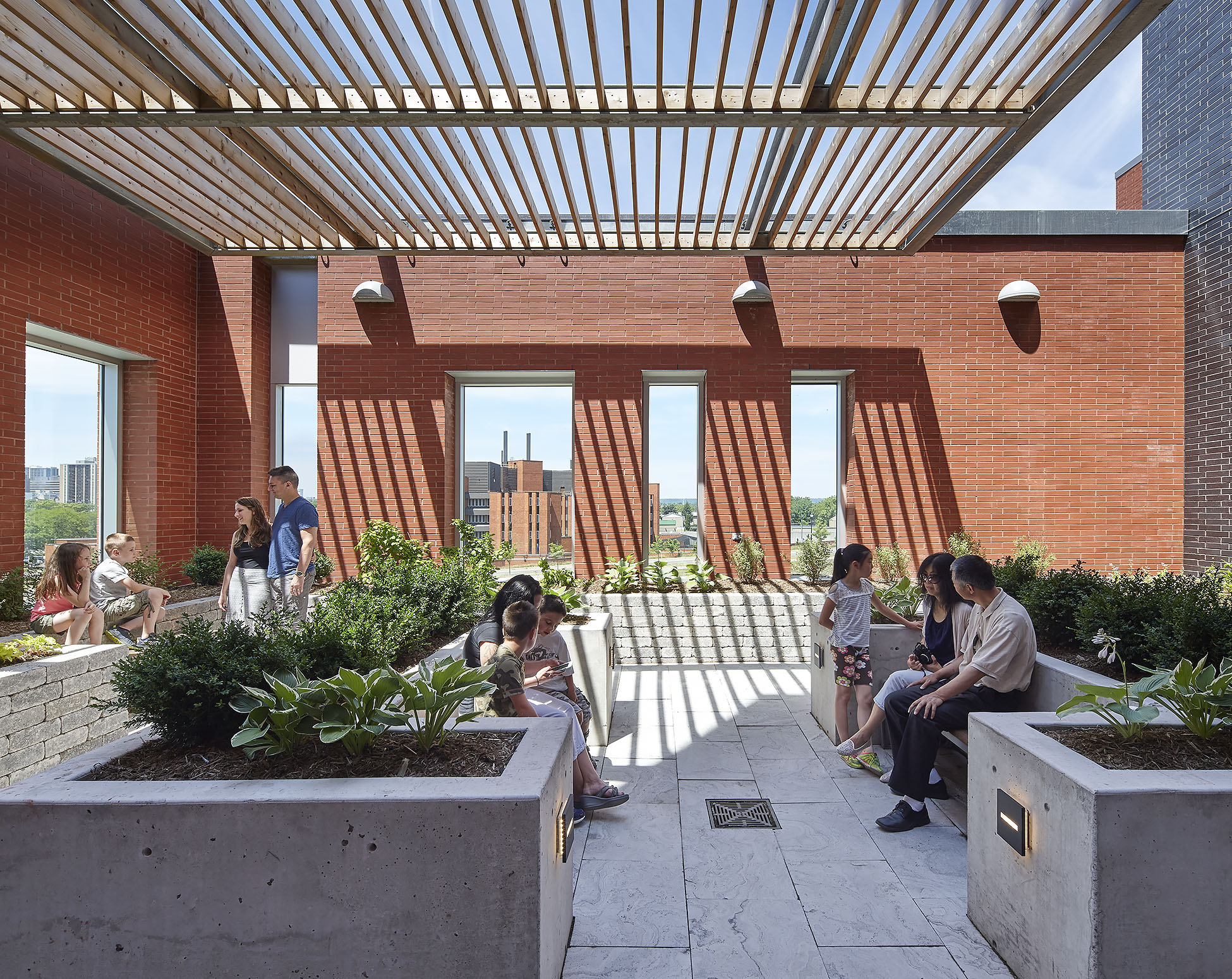
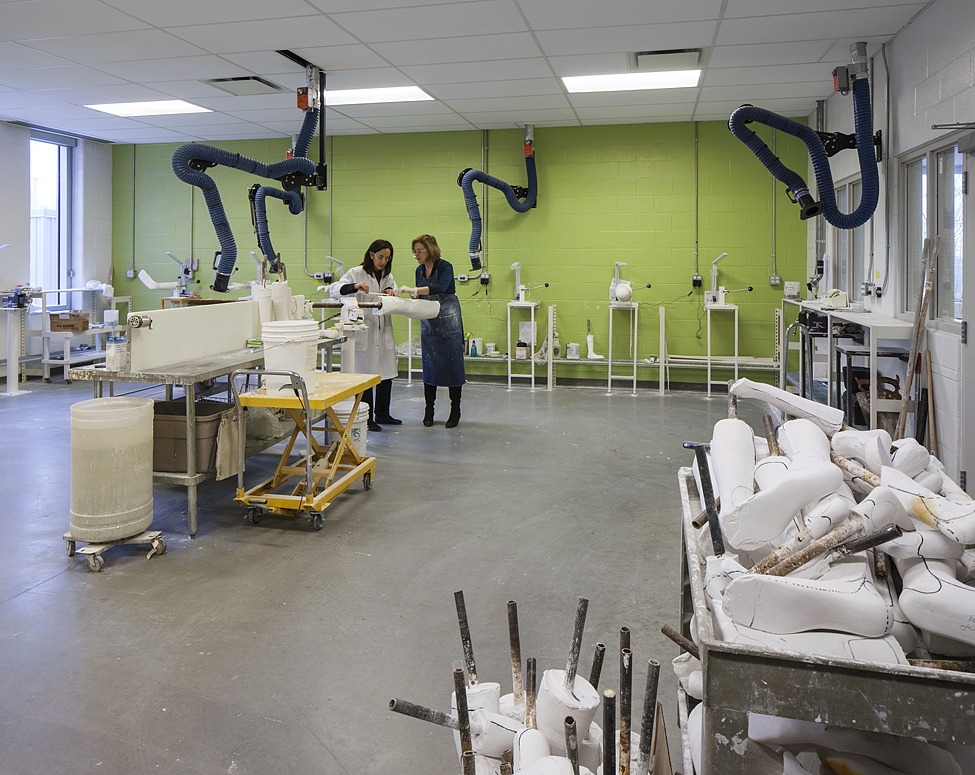
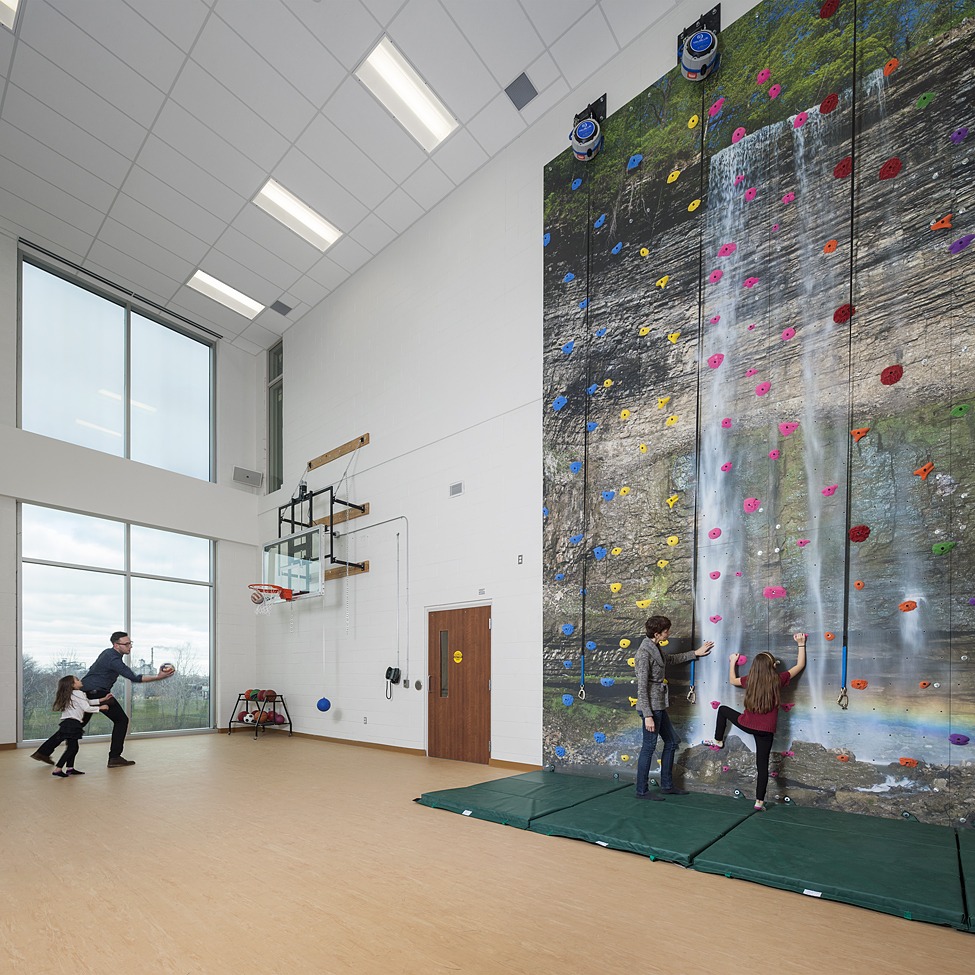
Highlights
- Achieved exemplary performance in innovative design through:
- 32% of construction materials utilized recycled content
- 45% of construction materials were sourced or manufactured locally within 800 km of the project, or within 2400km if shipped by water.
- An energy model predicts 58% less energy use due to implementation of energy efficient technologies such as individual lighting controls for at least 90% of building occupants, and efficient heating and cooling equipment.
- The project benefits from its location in an area characterized by development density and community connectivity, including efficient access to public transit
- Installation of low-flow fixtures to achieve a water use reduction of 36%
- 86% of construction and demolition waste was diverted from landfill
- Building envelope designed to increase thermal resistance
- Building’s HVAC systems do not use CFC-based refrigerants
- Project offers sufficient space for storing and collection of recyclables
- Indoor air quality management plan includes use of low-emitting materials
- White roof membrane reflects heat, rather than absorbing it
This facility allows HHS to provide exceptional patient care, and at the same time, contribute to environmental sustainability in our community and beyond.
